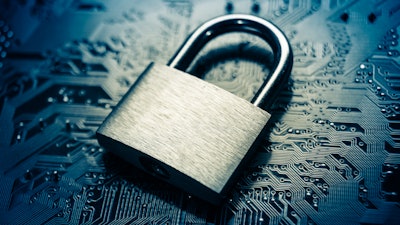
According to Verizon’s 2021 Data Breach Investigations Report, 61 percent of over 79,000 breaches involved the use of stolen or weak credentials. The study also found that credentials like passwords remained the most highly sought-after data for hackers. Even more interesting is that the study found that 85 percent of the breaches involved a human element.
Human error is considered the most significant driving force behind many cyber attacks. After all, a chain is only as strong as its weakest link. So, while a company’s cybersecurity strategy and experience in preventing cybercrime can be strong, it all boils down to its employees and how well they handle their credentials. What’s also worth considering is that many of these hackers don’t necessarily have to be in the same place as their victims to gain unauthorized access to their accounts.
Companies often set up training seminars and workshops to engage with employees about the importance of data security. Unfortunately, not everyone observes excellent password hygiene on a daily basis. ExpressVPN’s infographic on common passwords worldwide has revealed that when it comes to creating strong passwords, we’re not always very creative. A quick look at the infographic shows that most of us revert to using common words, phrases, and a sequence of numbers that are relatively easy to guess.
Creating a solid, unbreakable password might seem like a troublesome task. Fortunately, it’s not impossible. In fact, it’s pretty straightforward, not only will you be improving your cybersecurity, you’ll also benefit from the peace of mind knowing your sensitive data is adequately protected.
Here are five main things to consider when creating a strong password:
Length
The longer the password, the more complex and longer it takes to crack. Cybersecurity experts frequently advise that we create passwords that are at least 12 characters long. A 12-character password containing a mix of letters, symbols, and numbers would take approximately 34,000 years for a computer to crack.
Special Characters and Numbers
It’s not enough to create a password that’s both long and strong. You will need to create one with a mix of special characters and numbers and use both upper and lower case letters. This makes it exponentially harder for hackers to crack.
Unique
Try to avoid using common phrases and words in your passwords as best as possible. While you’re at it, avoid using personal information such as your birthday, driver’s license number, or even your address. In partnership with The Harris Poll, Google found that nearly 60 percent of people have integrated their birthdays in their passwords, while 33 percent tend to use their pet’s name. With a little social engineering and stalking, a dedicated hacker can quickly discover these supposedly private things about you.
Easy to Remember
One of the easiest ways to create a complex but easy-to-remember password is to use a passphrase instead of a common word. First, think of a phrase that’s unique to you. Perhaps it can be something like, “My dog’s name is Rufus.” Now, turn that into a passphrase by using numbers, symbols, and lower and upper case letters. Like this: M¥d04$n4m31sR^f^$!
This unique passphrase is easy for you to remember, and because it’s familiar to you without being too apparent, it makes it harder for hackers to crack.
Storage
Now that you’ve done all the hard work of creating these strong passwords, it’s essential to consider the right place to store them. You can store passwords anywhere, but the safest is a password manager. These online tools store all your passwords in a secure vault that requires a master password to unlock. This means you just have to memorize one password. Some password managers also come with a password generator that creates passwords according to your needs.
Remember, while the companies you work for and the software you use are generally responsible for the upkeep of their cybersecurity strategy, you’re responsible for your password hygiene and habits. With the tips above, you’re on your way to creating better cybersecurity habits.















